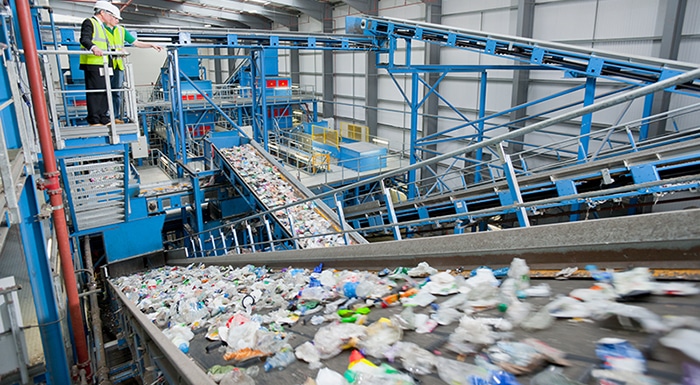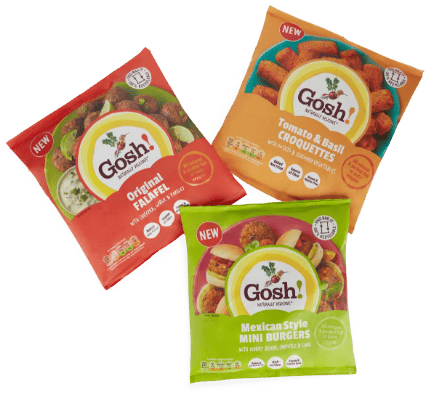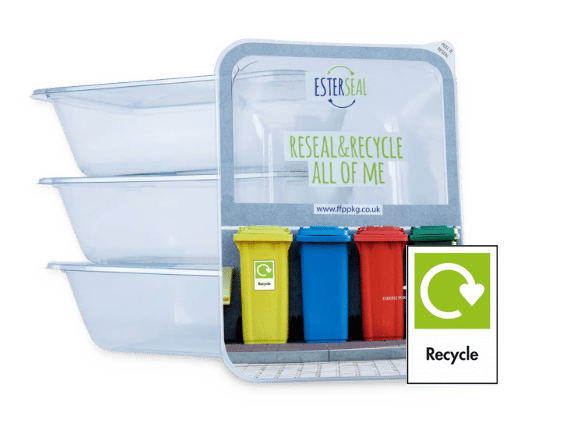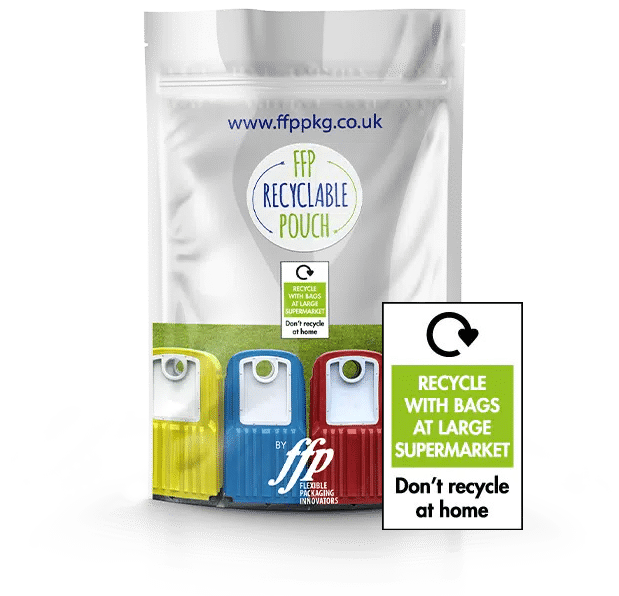Helping To Reduce Food Waste With Flexible Packaging
Globally, over 1/3 of all food produced goes to waste every year with 9.5 million tonnes from the UK alone (Source: Business Waste). Food waste is a major factor of climate change and as our population continues to grow, this issue is becoming more prevalent than ever before. But where do we start?

According to the BPF, 50% of food waste occurs during food production and processing compared to the 10% contributed by packaging. Plastic packaging accounts for even less, indicating how a product’s packaging can massively influence the protection of produce throughout the supply chain, a product’s lifespan, and consumers’ perception and behaviour towards how they store, consume and dispose of food.
In this blog, we look at some of the reasons behind food waste and how the packaging industry can sustainably play its part in helping reduce it.
What Are The Causes Of Food Waste?
Essentially, food waste consists of produce that is disposed of rather than consumed. This can occur at any stage of the supply chain and has huge humanitarian, economic and environmental impacts. Some of the main causes include:
- Over purchasing
- Committing to ‘best before’ dates
- Products spoiling due to packaging that is not fit for purpose
- Lack of education regarding food disposal
Why Do We Use Plastic Packaging?
In recent years, plastic has been in the spotlight and brands and retailers are working towards either reducing the amount of plastic they use or trying to find alternative recyclable packaging solutions, but it’s important to understand the reasons why plastic has historically been a go-to for packaging. Plastic has many different functions which adapt to the modern requirements consumers and retailers are asking for and is used because of its multiple attributes such as:
Did You Know?
Plastic packaging adds 10 days to the life of a steak
Flexible packaging extends a banana’s life by 3 days
Film extends the life of cucumbers by 14 days
(Source: British Plastics Federation)
Sustainability In Food Packaging
Packaging will always play an important role in enhancing a product’s shelf-life and protecting it from damage. With the development of new technology, along with innovative minds and design, there’s always room to optimise packaging potential and reduce food waste including:
- Using mono-material, recyclable packaging
- Choosing materials which can be collected with kerbside recycling services
- Providing clear recycling information on the packaging
- Resealable packaging to help produce stay fresh for longer
Provide Portioning And Convenience
Packaging and selling products individually, or containing individually wrapped items in one package, allows customers to buy and consume the quantity they need. With over 8 million single-person households within the UK (Source: Statista), ‘family-sized’ packs are not as fundamental as they used to be.
Items stored in recyclable or resealable packaging provide convenience for consumers and help maintain the lifespan of a product. It also eliminates the use of additional, and less sustainable, packaging such as cling film or sandwich bags to store any remaining food. These materials don’t offer the same functionality of packaging designed to maximise the shelf life of a specific product and minimise food waste.

Use Resealable Options
Resealable & Recyclable Lidding Film
FFP can offer a recyclable lidding film solution that is resealable, assisting in maintaining product freshness. It’s also suitable for Modified Atmosphere Packaging (MAP) to reduce product spoilage and increase shelf life. Lidding film is made from a lightweight, recyclable material and designed to be attached to trays of the same material. This means that the whole package can be conveniently collected for recycling in the consumers’ kerbside collection.

Mono-material recyclable laminates
mono-material laminates can be supplied in a wide variety of formats, such as pre-made pouches and bags, sachets and film-on-a-reel. They are an extremely versatile packaging solution suitable for a wide range of products. High barrier options are also available to protect the food and extend shelf-life. Reseal features can be provided such as zips on pouches to aid portion control and assist in maintaining product freshness. Currently, all PE and all PP mono material laminates can be recycled by returning to larger supermarkets.

Changing Customer Perceptions
Although we know packaging helps with extending the life of food, it ultimately comes down to the consumer’s actions. Whether at home or displayed in shops, food not stored in optimal conditions can become discoloured, misshapen and less appealing. In addition to this, if the aesthetics of food packaging is dented, damaged or faulty, the food inside could be perceived as tainted and therefore not good for consumption.
Educating retailers and consumers play an essential role. Many brands have removed their ‘best before’ dates; building consumer confidence in a product’s packaging to help maintain product freshness until opened and consumed within the recommended number of days. Alongside this, is the wider awareness of recyclable packaging and how to recycle it, encouraging customers to do so and potentially influencing their future shopping choices.
Sustainable Solutions
Packaging is not the only solution to food wastage but it can help reduce the amount thrown away and consequential environmental damage. Here at FFP, we are dedicated to developing sustainable and flexible packaging solutions which can help reduce the impact of climate change on our planet. To learn more, view our sustainable packaging solutions or get in touch.
find out more

Share This: